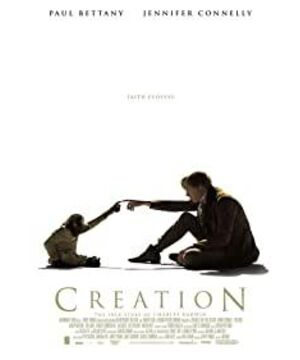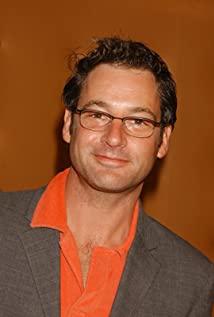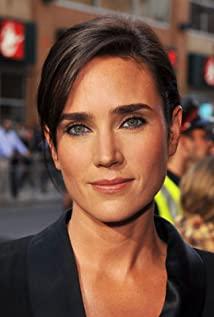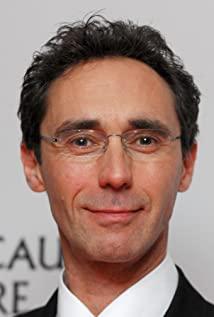At that time, there were only 7 movie theaters in the United States showing this work, and none of them were in Utah. After a few shows in the Washington area, they were offline. I'm not discouraged, how can such a coincidence be easily let go? I heard people in Utah in Utah when a friend in Beijing took a photo of a meeting in Egypt when they were interviewed on American radio... I kept searching on the Internet until I finally got my wish.
This is not an easy movie. The heroine and Darwin's wife Emma is played by Jennifer Connelly. She doesn't smile much from beginning to end. The expression in the whole film is basically frowning, and it is difficult to stretch even when receiving guests. , especially as Xi Shi was worried about the fate of Yue country all day long. In fact, there was no Bai Ding who visited Darwin's house. Among them were those Hongru who later entered textbooks, such as Huxley and Hooke, the inventor of the microscope. That was on the eve of Darwin's 1859 publication of On the Origin of Species. As an extremely devout Christian, Emma had a hard time accepting the ideas in this book, believing that everything in the world was arranged by God. In the movie, Huxley's words prove that Emma is not unfounded. He said to Darwin, "Sir, you have killed God."
Darwin fully understood his wife's concerns, he was caught between a dilemma, tormented by the conflict between faith and science. Darwin insisted on the pursuit of true knowledge, and at the same time he did not want to let his wife live in the anguish that the soul could not ascend to heaven. He must not only ponder the possible impact of evolutionary theory on the entire human society, but also the impact on his own small family. Darwin's writing often comes to a standstill, and he explains to his 10-year-old daughter, Martha, that love, trust, loyalty, honor, etc. will no longer matter if the whole world no longer believes in God's arrangements for us. , everything depends on the cruel survival needs. Plus, your mom will be especially sad.
The film doesn't show much about Darwin's scientific process, such as collecting specimens on the Beagle, the emotional process is the focus. The "present tense" of the film's narrative is positioned at the final stage of writing "The Origin of Species", when Darwin's physical and psychological conditions are at a low point. It was her daughter Anne who gave him confidence when he was hesitating, inspired him when he was disappointed, and inspired him when he was difficult. Anne had died a few years ago when she was just 10 years old. She communicated with her father Darwin again and again through flashbacks - the "past tense", which played a far more important role in the story than her mother Emma. Darwin often told stories to Anne in the flashbacks, introducing his own experiences in a way that children could understand, or explaining the basic meaning of the theory of evolution, so there are many secondary flashbacks in the film, that is, the flashback paragraphs in the flashbacks-- -"perfect past tense". The large number of multiple flashbacks and the British accent brought a lot of challenges to understanding the film. It was not until I watched it for the second time that I could basically understand the narrative structure of the film with the help of many pauses, rewinds, and fast forwards. The way to tell the difference between "present", "past" and "past perfect" is to look at Darwin's hair and beard. Darwin, the wise man, is best known as the image with almost all of his hair down and only a large beard, as it appears on the £10 note. Darwin in the movie "present tense" is much younger, about 50 years old. Relatively speaking, the time when he has more hair and less beard is "past tense". The time with the most hair and almost no beard is the "past perfect", which is the Darwin in Anne's story.
It's not easy to make a technology feature film, especially a subject such as evolution, which is measured in geological age. I always remember a detail from the Woody Allen movie Celebrity. The heroine and movie star Nicole returned to her childhood home with a reporter who was interviewing her. In the bedroom, she told the reporter, "I used to like to lie on this bed naked and watch my body develop." I was worried about Woody Allen. If he really wanted to express this process visually, what could he do? It's hard to come up with a good way. What Nicole is talking about is only the growth process of individual life in three or five years. If it is about the evolution of species over millions of years, as in "Creating Humans", the challenge is undoubtedly more arduous. Of course, the creators can't use 3D animations as simple simulations as popular science films. What they are doing is the approach of thriller films. Darwin took his children to play on the grass in the English countryside, and happened to be able to watch the whole process of fox hunting rabbits, so as to gain a perceptual understanding of the strong prey in nature. Darwin was discussing the plan of God's creation with the pastor. Just as he turned his head to the side, a food chain scene of caterpillars quickly hatching, birds eating worms, big worms eating small worms, and unfortunate birds that fell to the ground were eaten by worms suddenly appeared in front of the camera. When Darwin was writing in the middle of the night, his forehead was sweating, his hands were shaking, and the surroundings were not peaceful: the curtains were blown by the strong wind, and the fetal specimen in the glass bottle was gradually deformed... The whole scene indicated that the ghost was about to arrive, and Not a scientific monument is about to be born.
Despite its flaws, the film still has a lot to offer. The story lacks the inherent dramatic conflict, but the two confrontations between Darwin and the priest, and Darwin and his wife are designed to be more tense. In addition to the courage to touch difficult subjects, the creator's efforts to humanize Darwin are worthy of appreciation. We all know the importance of evolution in human history, but little about the details of Darwin's work. In the beautiful English countryside, in the torture of disease, in the grief of losing his beloved daughter, Darwin was able to complete the "Origin of Species" and decided to take the risk of publishing. He is not a revolutionary with the intention of destroying religious beliefs. Instead, Darwin remained a Christian throughout his life and was finally buried with honor in Westminster Abbey.
Borrowing from Darwin's theory, I see this movie as the result of artificial selection, not natural selection. A friend's blog is the immediate reason, and another important reason is that I am very interested in what evolution has encountered in the United States. During my trip to Utah, I interviewed the largest local aquarium, and when I chatted with the curator from a marine biologist background, I asked him if he believed in evolution, and he said yes. The theory of evolution has always been regarded as a scientific truth in China, and it is hard to imagine that a reporter would ask a scientist a similar question in the United States. According to a 2008 Gallup poll, a whopping 44 percent of Americans reject evolution and believe in creationism, which of course should include people in the tech world. In addition, there are avant-garde scientific people trying to find a new balance between religious belief and evolution, and their bedside table can have both the Bible and Scientific American magazines. They argue that scientific theories do not threaten belief and that evolution is just an elegant way of God's creation.
View more about Creation reviews











